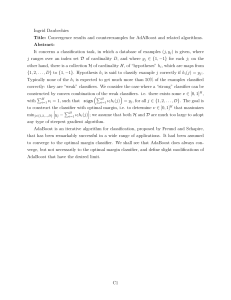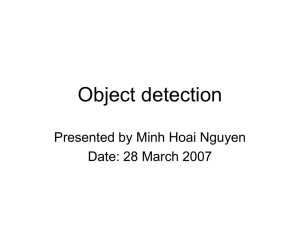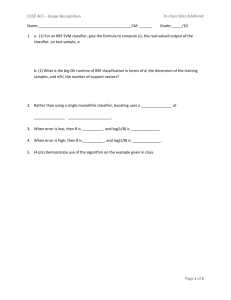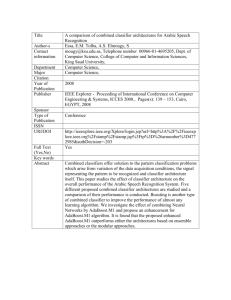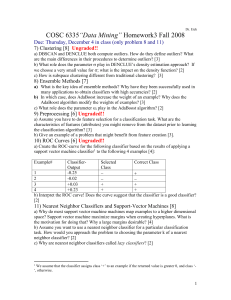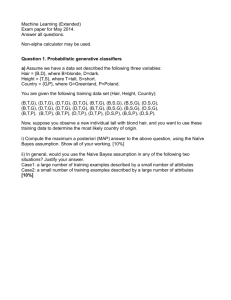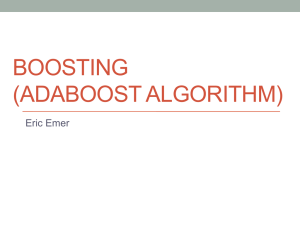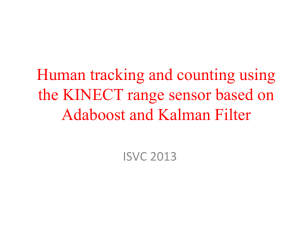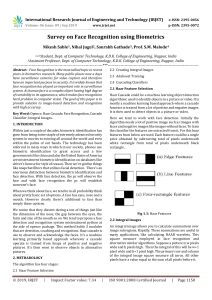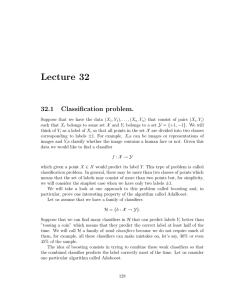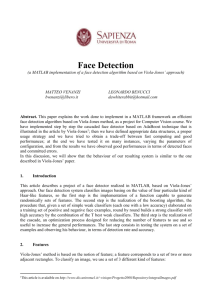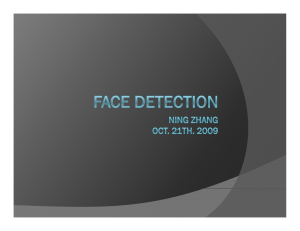Rapid Object Detection using a Boosted Cascade of Simple Features
advertisement
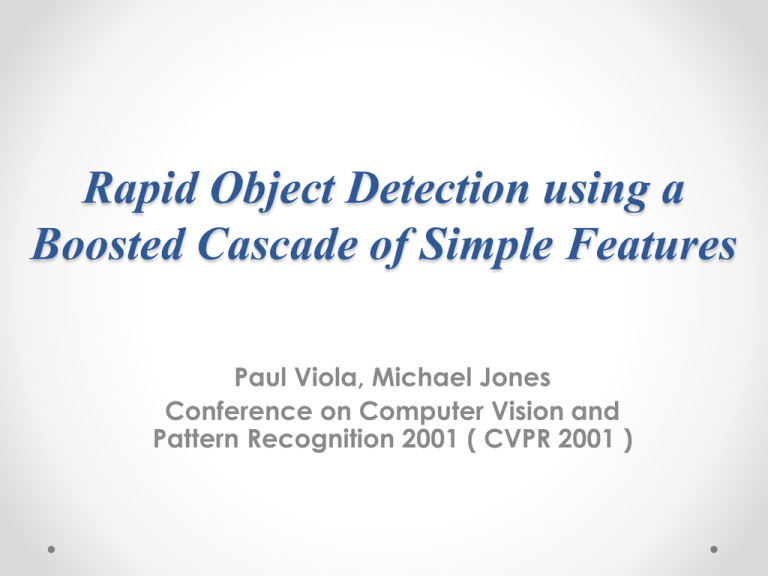
Rapid Object Detection using a Boosted Cascade of Simple Features Paul Viola, Michael Jones Conference on Computer Vision and Pattern Recognition 2001 ( CVPR 2001 ) Outline • • • • • Introduction Features Learning Classification Functions The Attentional Cascade Result Introduction Three Contribution • New image representation - Integral image • Method for constructing a classifier - Selecting a small number of important features using AdaBoost • Method for combining classifiers - In a cascade structure Features Three Kind of Features • Two-rectangle • Three-rectangle • Four-rectangle • Feature value = sum of pixel value in white area - sum of pixel value in black area Integral Image • Integral Image Rectangular Sum Rectangular Sum Location A 1 B 2-1 C 3-1 D 4+1-(2+3) Learning Classification Function Learning Classification Function • Very small number of features can form an effective classifier • Select best classifier feature • Weak classifier AdaBoost algorithm AdaBoost algorithm Learning Result • A frontal face classifier - 200 features (among 180,000) - Detection rate: 95% - False positive rate: 1/14084 - 0.7s to scan an 384*288 pixel image • First feature selected - The eyes is often darker than the nose and cheeks • Second feature selected - The eyes are darker than the bridge of the nose The Attentional Cascade Cascade Training a cascade of classifiers • Tradeoffs o Features↑ ↔ detection rates ↑ o Features↑ ↔ computational time ↓ • Constructing stages o Training classifiers using AdaBoost o Adjust the threshold to minimize false negative Result Result • Face training set o o o o 4916 faces image 24*24 pixels 9544 image 350 million sub-windows • The complete face detection cascade has o 38 stages o 6061 features o 15 times faster than current system Performance Performance Result Thank you for your attention!
